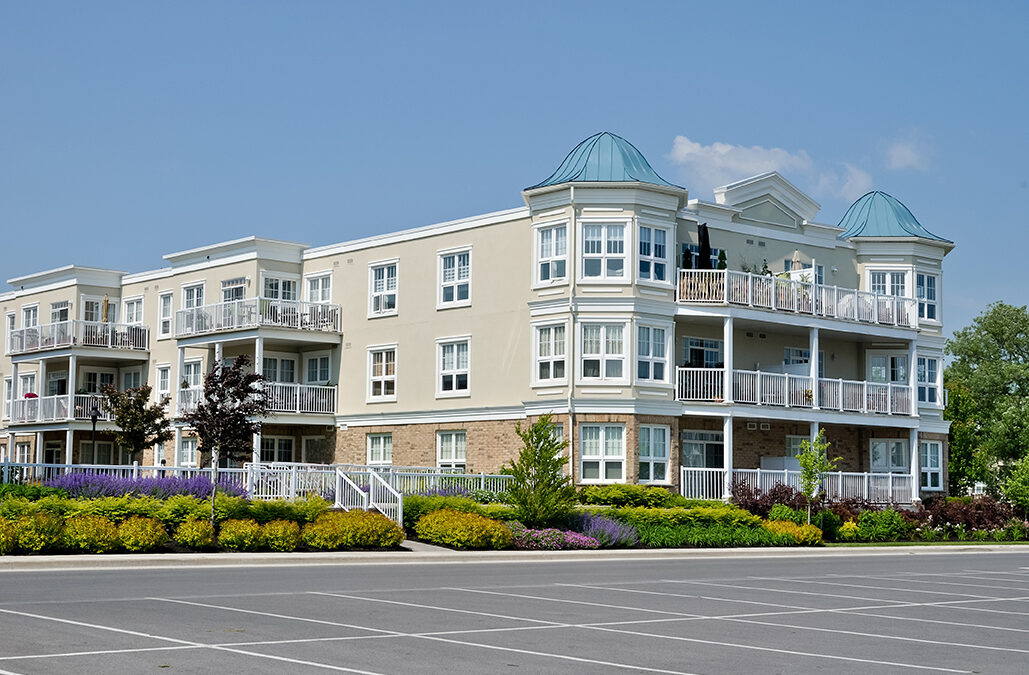Retirement Home Search: It’s Not as Daunting as It Seems

What To Do If You Are Snowed In As An Elder
February 18, 2025
Elder Care Planning: Preparing For Alzheimer’s and Dementia Care
April 18, 2025According to research done by one of Canada’s largest retirement community associations ORCA, the most common emotions reported during the search for a retirement community are feelings of being overwhelmed, cautious, and stressed. This is understandable as it is important to take factors such as finances and the amenities / services offered into consideration. However, the following will explain why the retirement home search is not as daunting as it seems with these tips to help navigate the search.
A Variety of Choices
There isn’t merely one type of retirement home that is intended to be suitable for every person. Many different retirement communities exist including both short- and long-term care facilities. This includes assisted living, independent living, independent supportive living, and long term care (typically more than 3 hours of daily care). Each option offers a varying level of support and cost.
Budget
As we discuss later on, each home will be able to cater to different cognitive and physical care needs. Due to this, they come in a wide range of price points. Everyone has a unique financial situation. Eliminating ones exceeding the maximum price range will simplify the retirement home search process and save time.
If private care isn’t an option, a government-sponsored senior residence may be a solution. For more information on public long term care homes in Quebec, otherwise known as CHSLD’s, contact (***this is the proper link*** https://www.ramq.gouv.qc.ca/en/citizens/aid-programs/accommodation-a-public-facility). For information on public long term care residences in Ontario, contact (****this is the proper link*** https://ontariohealthathome.ca/long-term-care/).
Location
Ideally, the retirement home shouldn’t be too far from favorite places or, at the very least, familiar surroundings. It is best to give priority to the senior living community that is close in proximity to family and/or friends. This way, there is easier access to both emotional and physical support as needed.
Assess Needs
Each individual has preferences in terms of what they would like to have available in their retirement home. However, it’s important to first consider what the retirement home must provide.
For example, will medical care be needed? Or, are there any specific physical or cognitive limitations to take into account? If the level of care needed isn’t quite known, a personal needs assessment will explore the individual’s mobility, health, and overall daily living needs to determine the best fit.
[Related: Psychosocial Assessments for Protection Mandates]
The opportunities for engaging in social interactions are another critical part of selecting a retirement home. Are there activities scheduled to encourage interaction between residents?
What about meals? Many independent living communities will have a full kitchen. However, every retirement home will have a dining room where meals can be taken a la carte or daily meals can be incorporated into the rent. Helpful tip prior to deciding on your ideal retirement home – many will offer a complimentary lunch to try their food AND get a better idea of the culture and environment of the community.
Consider Future Needs
A person’s needs change over time. When searching for a retirement home, consider whether it offers flexibility if healthcare plans change. Having a plan of action for handling and caring for possible physical and cognitive health changes offers reassurance. This alone can do wonders in reducing the emotional impact of moving to a retirement home.
Visit Multiple Homes
It is advised to take tours of multiple retirement homes to get a real feel for each place. This offers the opportunity to see the amenities and speak with the staff. It is possible that this will offer you a chance to speak with current residents and their family members. This is a good way of learning about their experiences firsthand.
Research Reviews
If speaking to current residents isn’t an option, do not underestimate the power of word of mouth. Check online reviews and find information on the residences from outside sources. In this age of technology, there may be a few false claims but if there are consistently unappealing reviews of a facility, trust your instincts. It is also highly advised to get the input of your Lianas Senior Advisor who will have a wealth of experience of all the retirement homes in your area.
Retirement Home Search Simplified
With these tips in mind, searching for the right retirement home will feel less daunting. If you’re beginning the search for a retirement home or need more support throughout the process, Lianas is here to help. With the help of a Senior Advisor, you will be rest assured knowing you made the healthiest, safest, and most cost-effective decision possible regardless of the type of home.
A Senior Advisor will not only prepare a customized needs assessment (***Please do not use a link – assessment as this is a psychosocial assessment link**) and arrange the tours of the homes but they also go on the tours with you. They can also provide a 70-point checklist of things to consider when looking for a retirement home.
With Lianas Senior Transition Support, you can be assured that every aspect of the retirement home search has been covered.
Search and tour services are provided at no charge and with no obligation, as the service fees are covered by the sponsored retirement homes and senior residences. Additionally, the professionals at Lianas do not stop once the home has been selected! They will also coordinate the logistics of selling the home, downsizing, and the move itself. The entire Lianas team will make the experience less daunting to ensure a smoother transition.
For a free, no-obligation consultation, please call Lianas Senior Transition Support at (514) 622-8074 or email us at info@lianasservices.com. You may also message us directly on our official website here.




